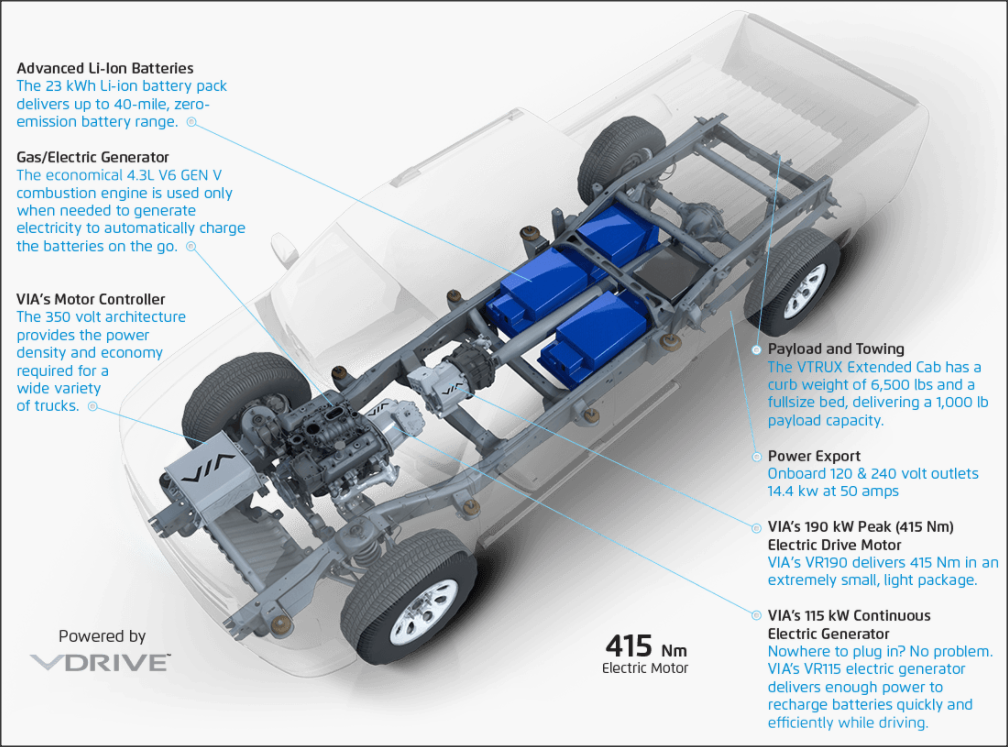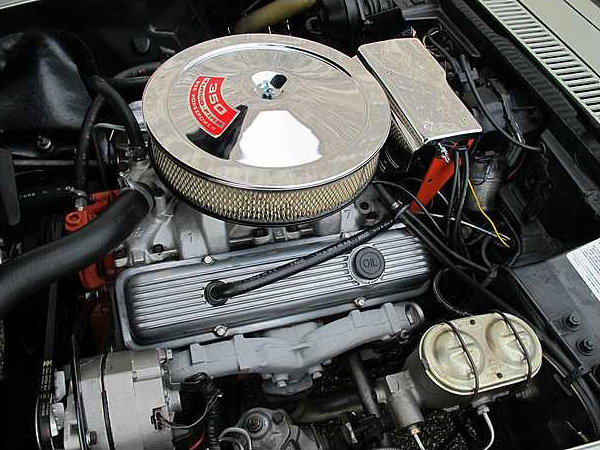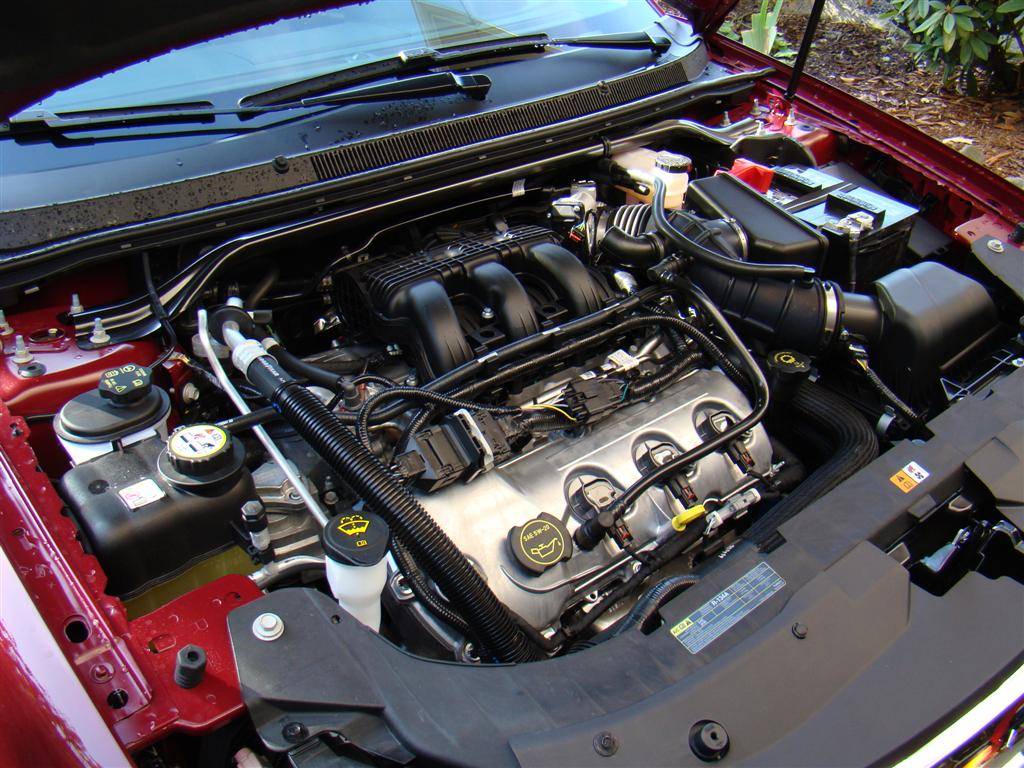MikeTrike
Fully [H]
- Joined
- Nov 16, 2005
- Messages
- 16,894
And the biggest negative for me, where are the damn trucks? My new RAM 1500 gets like 24-26 on the highway and I average about 20+ combined, you would think this tech would have started with semi's where you have the room for more batteries and the such, but until there is an EV truck it's not even worth me reading the articles
I'm still waiting for this kinda stuff to fall in line with what a traditional ICE truck would cost, also for it to be readily available to consumers... I imagine as on-board power storage and charging abilities improve, the need for the on-board power generation could naturally dissipate... Or become optional, or whatever...

Basically a truck version of the Volt...

Though I'm curious to see what Tesla comes up with, VIA is the only thing compelling to me in the EV arena, even though it's technically a hybrid... I'd argue that it's a correctly designed transitional hybrid, in that the power train is technically full electric by design... Just remove the generator when battery/charging tech "gets there," wherever the sweet spot for there is... Plus the general benefits from having an all electric drive system... Instant torque being my favorite... Even my tiny ass 500e gives you that roller coaster launch feeling...
I also like the Regera hybrid system... Just because.

![[H]ard|Forum](/styles/hardforum/xenforo/logo_dark.png)



